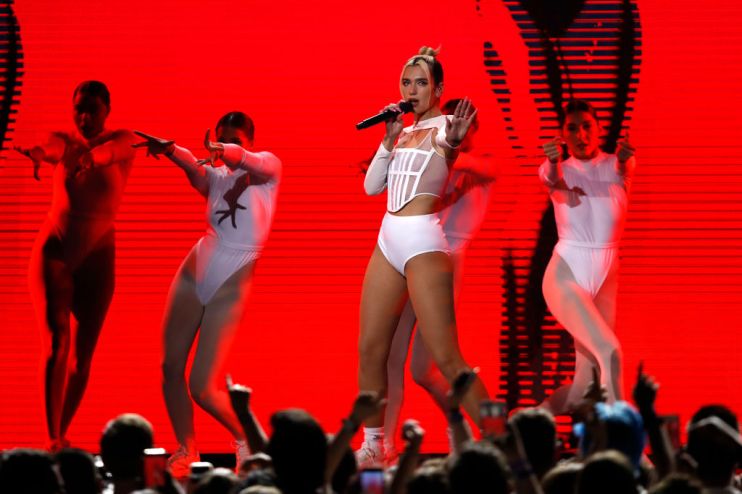Don’t believe the hype: streaming doesn’t sell artists down the river

Last October, the Digital, Culture, Media & Sport Committee launched an inquiry into the impact of music streaming on artists and the industry, after calls from campaigners to shake up how streaming royalties work.
While I appreciate the concerns of many artists, I should say that I am a big fan of streaming, for many reasons. When I first became a Minister more than a decade ago, illegal piracy of music was rife.
The advent of legal streaming services has now provided a legitimate way for millions of people to listen to music, and for artists to get paid. The fact that we have harnessed technology so that people can enjoy instantly listening to pretty much every song ever recorded is an amazing innovation.
Read more: Wanted – a Minister for Hospitality
But as a result of the pandemic, musicians’ income from live gigs has been decimated. Add to this, the uncertainties around post-Brexit work permits or visas to allow artists to tour, and you can really see why artists want to strike the best possible deal from digital consumption.
The main grievance here is – why is it that music streaming in the UK generates over £1 billion in revenue a year, but some artists say they receive little in royalties?
The fact is that income depends on popularity – the more a song is streamed, the more royalties an artist receives.
It’s hard to think of a single corner of the cultural sector that does not reward creatives based on their popularity – which is, after all, the collective choices of fans.
Streaming gives consumers more choice and allows any aspiring artist to reach fans all round the world. It’s miles away from how artists were remunerated in the age of CDs, vinyl and cassettes, and that’s a good thing.
When physical sales were king, the top ten artists were twice as dominant in terms of earnings as they are now. With streaming however, considerably more new talent can build up a real fanbase, whilst popular established acts are able to find new audiences and become timeless.
I’m not suggesting there’s nothing to fix. Music is being devalued, and musicians’ earnings are being impacted. Ad-funded streaming services are not paying fairly for the music that drives their business.
To give one example, YouTube accounted for over 20% of total streaming consumption in the UK last year – and yet it generated only £35 million in royalties, £20 million less than artists and labels earned from good old-fashioned vinyl records. As such, the question we really should ask is how such services get away with paying so little.
The market is by no means perfect, but, unlike the giants of free content, subscription-based streaming enables more artists to share in the money made by music, rather than a small group taking more of the cash, as happened under the old system.
This includes lesser-known groups. Even artists at the bottom of the Top 1000 are achieving tens of millions of streams in the UK alone, and you can multiply this many times over once you include streams around the world. No surprise then that music consumption has risen for six consecutive years.
It is also thanks to revenue from online streaming that record labels are able to invest in discovering and promoting new talent. New signings made by the UK’s major record labels have risen by 38% since 2010. In an era where it takes on average £400,000 and up to two years to break new artists into mainstream public consciousness, consistent and long-term investment in new artists is vital.
Take Lewis Capaldi’s debut single ‘Bruises’ – this was released in 2017, but it wasn’t until 2019 after much work from his label, that it was certified Gold.
Are we prepared to miss out on the next Lewis because we’re not comfortable with more popular artists earning more than others and the fact that, like in any creative business, not every artist will succeed?
To me, taking money away from new, rising artists to subsidise artists who are no longer popular would be a nonsensical waste, for aspiring new entrants, music fans, and the world at large for that matter.
Streaming has been a boon for the UK’s soft power. The UK’s share of global streaming is four times greater than its share of global GDP. UK acts now make up nearly 20 per cent of streams in Western markets (such as the US, Australia, Germany and France) and are breaking new ground in emerging markets in Africa and South America. If music streaming isn’t one of our loudest, proudest ambassadors for Global Britain, then I don’t know what is.
Now that we have left the EU, the last thing politicians should do is subject one of our most successful growth industries to new layers of unnecessary regulation.
Post-Brexit, the UK should stand for the free market and competition, not pettifogging bureaucracy and centralisation. The music streaming market is an example of competition working its magic: services compete for users, labels compete for talent, artists compete for fans. This creates technological innovation, investment into new talent, value and choice for fans, more new music and more artists achieving success every year. Now that’s a tune everyone can sing along to.
Read more: City A.M. Editor Andy Silvester in conversation with Hong Kong activist Nathan Law
